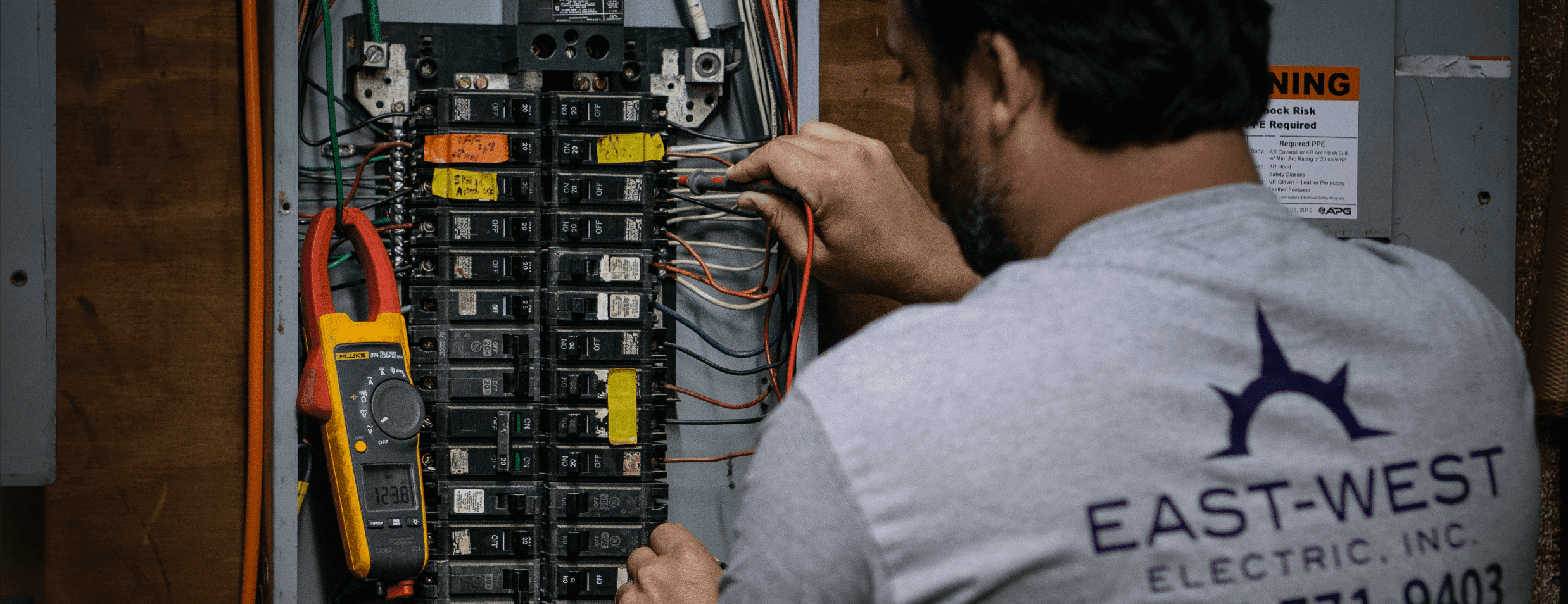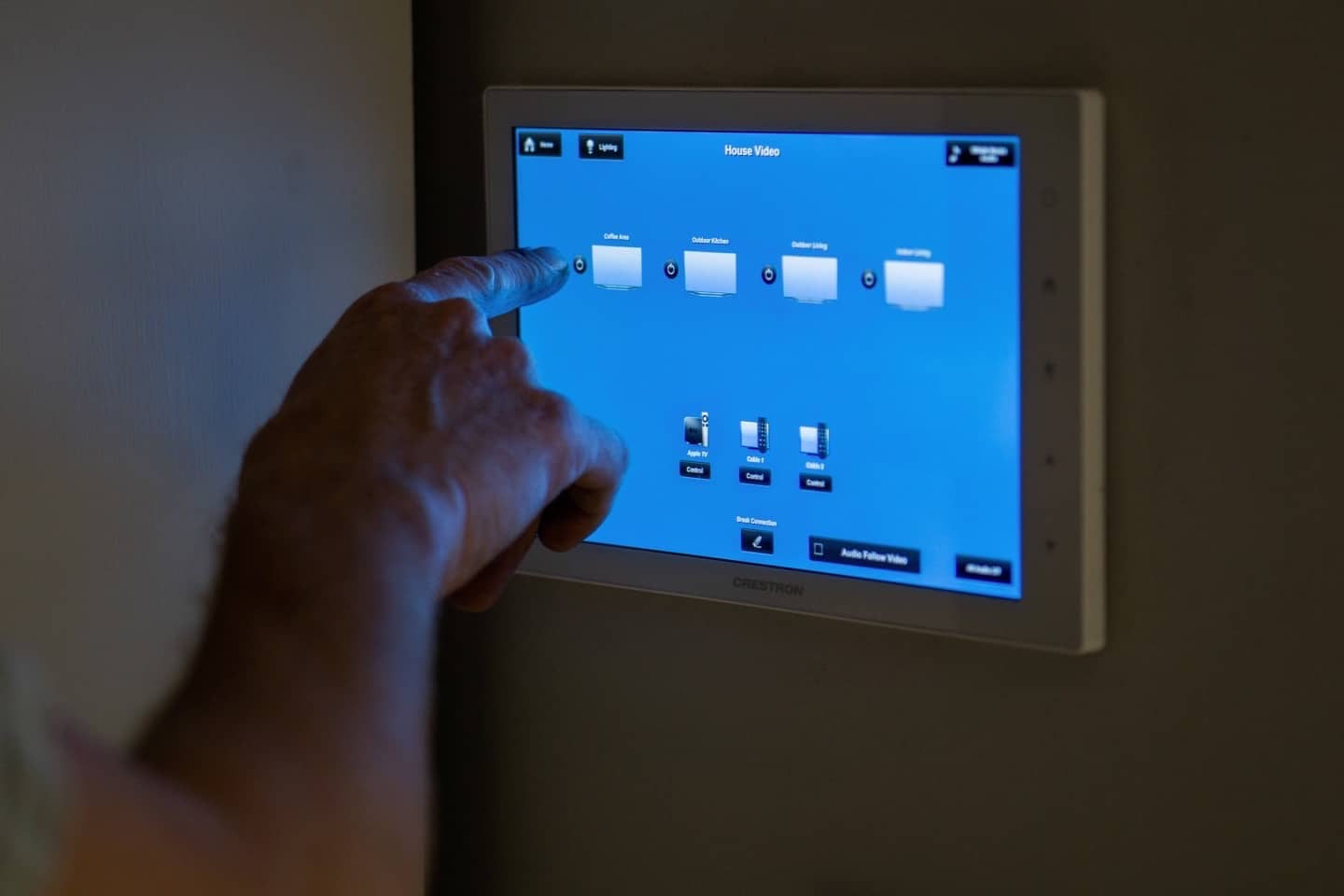Having a good idea of how long power outages last and what causes them will help ensure that you are properly prepared for when the lights go out. At East-West Electric, we understand how important it is to not only properly prepare for a power outage but also to know what to do during a power outage. Our team of experts has gathered some helpful information you should know during the next power outage.
What Causes Power Outages?
Power outages can be caused by several different factors. From a statewide power outage to having dimming lights at home. Let’s take a look at some of the most common, and what steps you should take to avoid damage to yourself and your property.
Faulty Circuit Breakers
Circuit breakers are important in your home. They are the switches in your home’s electrical cabinet that will trip if there is a power overload and till shut off power preventing a potential electrical fire. But, a faulty breaker could possibly do the opposite. You should get an electrician to take a look at your home if it loses power often or if the breaker keeps cutting off electricity to the entire house.
Overloaded Power Boards
The number one sign of an overloaded power board is that your breaker trips frequently. Overloaded power boards are common in apartments and homes where there are lots of electrical appliances plugged into the boards. Make sure to unplug devices that you’re not using and don’t stack power boards on top of each other. You wouldn’t want a housefire to be caused by your phone!
Electrical Storms
Lighting during electrical storms can cause outages. When lighting hits electrical equipment it will cause you to lose power. Lighting may also hit trees that will consequently fall onto power lines and make you lose power.
Flooding And Bushfires
There are more weather fatalities that can cause power outages. Flooding and bushfires can damage electrical infrastructure and make it difficult for repair crews to access the affected area.
Wildlife
Animal-caused outages are not simply a rural phenomenon: Squirrels, raccoons, snakes, domestic cats, and other climbing animals cause substation outages in urban, suburban, and remote locations across North America. If there is wildlife near power equipment there is a high possibility that it will cause an outage of public power utilities.
Common Duration Of Power Outages
While most power outages tend to be over as quickly as they begin, more severe power outages can last for days or even weeks. Power outages can be caused by extreme weather conditions like freezing rain, sleet storms, and high winds. These damage powerlines and equipment or cold snaps or heat waves that overload the power grid.
What To Do During A Power Outage?
The first thing you should check during a power outage is whether or not the outage is limited to your home. If your neighbors’ power is still on, make sure to check your circuit breaker panel or fuse box to see if there is a problem. In the event that there is no problem with a breaker or a fuse, you will need to notify your trusted electrician company, as the issue could be the service wires leading to your house.
Whether it is limited to your house or it also affects your neighbors, during an extended power outage you should:
- Turn off all tools, appliances, and electronic equipment, and lower thermostats to a minimum to prevent damage from a power surge.
- Turn off all lights except for one, so that you know when the power has been restored.
- Avoid opening the fridge or freezer unless absolutely necessary.
- Never use charcoal or gas barbecue, camping heating equipment, or home generators indoors because they give off carbon monoxide which is life-threatening.
- Never leave lit candles unattended or within reach of children and always use proper candle holders.
- Get on your radio and listen for any information.
- Ensure that your home has a working carbon monoxide detector.
- Protect sensitive electrical devices, including TVs, computers, and Blu-ray players, with a surge-protecting Powerbar.
Preparing Your Home For A Power Outage
- Install a non-electric heater. Choose a heater or standby stove that doesn’t need an electric motor.
- Use wood-burning fireplaces. If you do have one, make sure you clean the chimney before using it.
- If you are thinking of using an emergency power generator in case of a power outage, check with your appliance manufacturers for their requirements and operating procedures.
Residential And Commercial Electricians in Clearwater, FL
If you would like to learn more about power outages, or if you are interested in one of our residential electrical services, please contact East-West Electric at (727) 771-9403 for a free inspection. The right time to call an electrician is immediately.
Additional reading:






